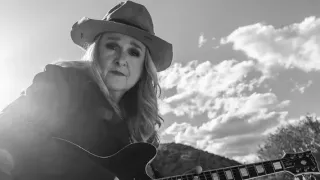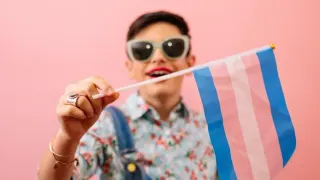February 14, 2015
'I Do' Is Just the Beginning
Kilian Melloy READ TIME: 3 MIN.
We are witnessing an unprecedented time in the LGBTQ civil rights movement. We have the freedom to marry in more than 35 states, with the Supreme Court scheduled to take on the issue of marriage equality later this year. At the federal, state and local level, we continue to achieve legal advancements towards equality for everyone under the LGBTQ rainbow.
This last year, more than any other, we are hearing the message that our lives matter and our identities and relationships are entitled to the same respect and affirmation as our cisgender and heterosexual counterparts. Our community deserves to celebrate this upcoming Valentine's Day, out and proud. Whether single or coupled, as you make plans in honor of Cupid, I encourage you to remember that our ability to celebrate this "day of love" has not been without tremendous struggle for our local communities and beyond.
While each marriage equality victory moves us closer to eliminating homophobia in our communities and in our nation, the National Center for Transgender Equality notes that only 37 percent of Americans live in a place that prohibits discrimination based on gender identity and expression. We must not forget our transgender brothers and sisters, and we must not forget the tremendous amount of work, on multiple issues, that our LGBTQ community still has ahead of us to achieve social and legal equality.
We are a movement and a community that sprang from the social uprisings of the 1970s, and we all worked well together. While Harvey Milk was working to secure equality for gay and lesbian people in San Francisco, he was also forging alliances with labor partners, to ensure fair working conditions for everyone in the state. While he hit the campaign trail to beat back the vicious statewide anti-LGBTQ Briggs Initiative, he was working at the local level to ensure fair access to voting for people of color and immigrants, affordable housing for the poorest in his city and serving as an ally to the emerging 2nd wave feminist movement.
We must not forget that even though the Supreme Court has previously rested on the side of fairness and equality for committed same-sex couples and communities of color, during the same period the public was stripped of vital electoral protections when the Supreme Court invalidated a key provision of the Voting Rights Act. We must not forget that our immigrant communities are struggling for basic recognition and a humane, compassionate and timely path to citizenship. We must also not forget that our struggles are intertwined, and that we are all interconnected.
As we celebrate our victories and celebrate our love this month, we must remember that when a lesbian cannot access healthcare because she is undocumented, immigration reform is an LGBTQ issue. When a man cannot support his husband, although he has a full-time job, living wages are an LGBTQ issue. When a transgender woman waits outside a shelter, so she can finally rest after walking the streets all night, affordable housing is an LGBTQ issue. When someone cannot maintain their HIV medication regimen, because they are too busy trying to find a job, a home, or even just a bed for a night, these are all LGBTQ issues.
When we do, we can truly see the interconnectedness of our movements and how much work still lies ahead. The potential and possibilities for our communities are limitless when we work together. After the rose petals settle and once your chocolate coma dissipates, I hope you'll join me in continuing the fight for equity and equality for all.
 Copyright Rage Monthly. For more articles from Rage visit
Copyright Rage Monthly. For more articles from Rage visit 





